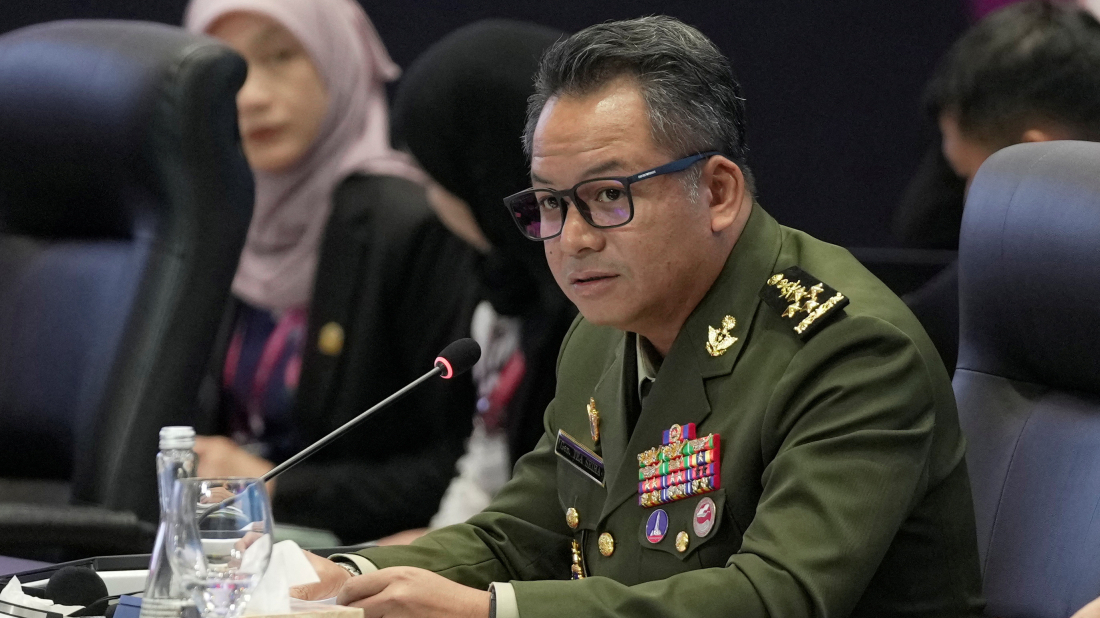Telegram rejects Russian claims that spies can read soldiers' messages
The Telegram messaging app has dismissed allegations by the Russian government that its encryption has been breached by foreign intelligence services ...

Cambodia and Thailand’s senior defence leaders are meeting in Malaysia on Thursday (7 August) again for talks aimed at securing a lasting end to hostilities following a violent and deadly five-day border conflict in late July. The two sides have agreed to ASEAN monitoring and open talks.
Cambodian Defence Minister Tea Seiha and Thailand’s Acting Defence Minister Nattaphon Narkphanit are meeting at Kuala Lumpur at Malaysia’s Armed Forces headquarters to establish protocols for a resolution regarding the border dispute, rebuild trust between military forces, and implement measures to protect civilians and reduce tensions.
In a statement on Thursday, Nattaphon confirmed that Cambodia and Thailand have agreed to let the Association of Southeast Asian Nations (ASEAN) monitor the ceasefire. He added that both sides will continue open dialogue and utilise existing bilateral mechanisms to manage future tensions.
The clashes, which included artillery exchanges and airstrikes, resulted in at least 43 deaths and displaced more than 300,000 people on both sides.
Despite efforts from China and Malaysia, the fighting persisted until U.S. President Donald Trump pressured both nations by linking peace to ongoing tariff negotiations.
These terms were drafted more than three days of senior official talks in Kuala Lumpur and will be finalised with oversight from Chinese and U.S. observers.
The longstanding border dispute stems from undemarcated sections of their 817 km (508 miles) frontier, originally mapped by France in 1907.
The drumbeats have finally faded at the Marquês de Sapucaí, bringing the competitive phase of the Rio Carnival 2026 to a dazzling close. Over two marathon nights of spectacle, the twelve elite schools of the "Special Group" transformed the Sambadrome into a riot of colour.
Peru’s Congress has voted to censure and remove José Enrique Jeri Ore from his posts as President of Congress and acting President of the Republic, just four months into his tenure, citing undisclosed meetings with Chinese businessmen and alleged hiring irregularities.
France celebrated Olympic gold in the men’s biathlon relay in Anterselva on Tuesday (17 February), following a thrilling race marked by an electric atmosphere at the stadium.
Qarabağ FK are facing Newcastle United in the UEFA Champions League play-off round on Wednesday evening in Baku, in what will be the first UEFA competition meeting between the two clubs.
Iranian officials say more than 300 undocumented Afghan migrants have been rescued after being stranded in cold and rain near the border district of Taybad, in the northeastern Razavi Khorasan province.
The Telegram messaging app has dismissed allegations by the Russian government that its encryption has been breached by foreign intelligence services saying that it's not found any breaches of its encryption.
A South Korean court on Thursday sentenced ex-President Yoon Suk Yeol to life in prison for leading a failed 2024 martial law insurrection, making him the first elected leader in the country’s democratic era to receive the maximum sentence.
Russian President Vladimir Putin met Cuban Foreign Minister Bruno Rodriguez in the Kremlin on Wednesday, telling him that new restrictions imposed on the communist-run island were unacceptable.
The Board of Peace is entering uncharted territory, with questions over its ability to manage Gaza reconstruction, its potential to rival the United Nations, and its impact on strategic allies in the Middle East and South Caucasus.
Start your day informed with AnewZ Morning Brief: here are the top news stories for the 19th of February, covering the latest developments you need to know.
You can download the AnewZ application from Play Store and the App Store.

What is your opinion on this topic?
Leave the first comment